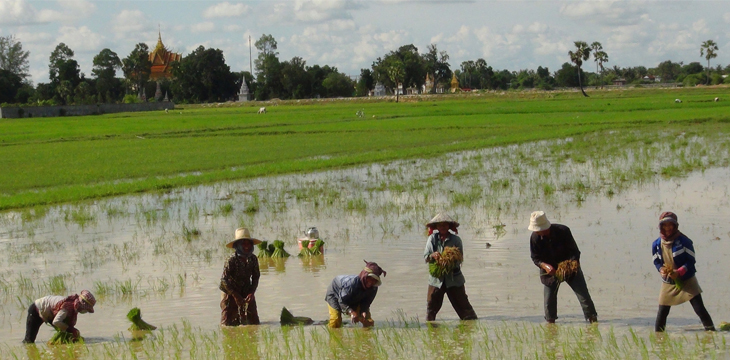|
Getting your Trinity Audio player ready...
|
Oxfam plans to initiate a blockchain-backed project that will help rice farmers in Cambodia get better prices for their products.
Oxfam International, a group composed of several independent charities, is making a move to improve the standard of living of Cambodian rice farmers with the help of blockchain technology. The project, called Blocrice, will be first tested in the northern province of Preah Vihear, Cambodia, involving 50 farmers.
If Oxfam’s blockchain project pulls through, it will go a long way towards bringing a revolution to Cambodia’s economy. It aims at bringing all the players involved in rice farming together, including farmers, cooperatives, and exporters into one ecosystem.
How farmers will benefit
Farmers will be able to get direct information about the standard price of rice in the market. This will help them sell their produce for a better price since they will no longer have to rely on middlemen and exporters. They will also get reliable information about trade volume and better transportation methods.
Financial transactions will also be done via banks, so financial records are adequately documented.
Targeting agriculture will inevitably transform Cambodia economy, since the country is heavily dependent on agriculture. Among the goals of the blockchain project is to introduce traceability, transparency, financial literacy, and best practices to farming in Cambodia. According to Solinn Lim, director of Oxfam in Cambodia, “The sheer fact of being registered as an actor on the blockchain platform implies that people matter. Blocrice will give them a platform to empower themselves.”
The Oxfam blockchain project will run until March 2019, allowing farmers to sell their rice harvested in the rainy season. Project organizers plan to expand to other provinces and include other farm products, including cassava, cashew nuts, maize, and pepper.
With this initiative, Oxfam and Blocrice hopes to prove that blockchain can make a direct and positive impact on the lives of people—particularly those working and living offline.

 02-27-2026
02-27-2026 




